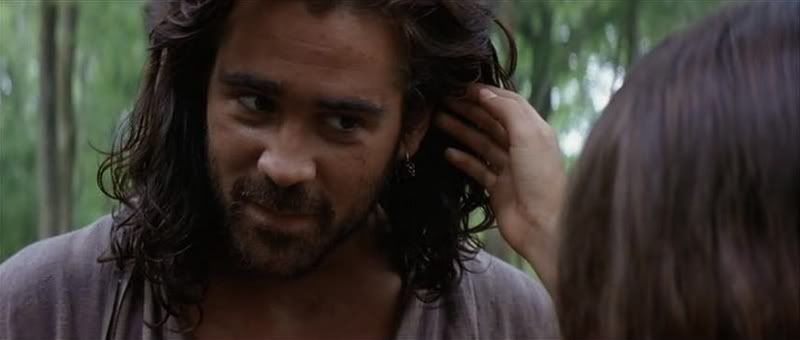A thought on "authorial intentionality" in film, in criticism
 From Ryland:
From Ryland:
Not sure if I 100% agree with Noel Carroll's reading of The General in Comedy Incarnate* (I have not finished, and I may not finish, reading the book) but I appreciate this brief characterization of "authorial intentionality" he offers in the introduction. Its something I'm hoping to incorporate into my idea of film criticism as a kind of phenomenological hermeneutics. But I really want to stay away from somebody like Heidegger, for now, because, at the least, that would require quite the diversion from my project. This is much more in line with what I'm after:
In addition to being impressed by Merleau-Ponty's work, I was also smitten by the phenomenological criticism of the so-called Geneva school, most especially by the writing of Georges Poulet. For Poulet, an author, by means of his emphases and selections, presents his "intentionality" to the reader -- the way in which his consciousness is directed toward the world. The task of analysis then is to identify these patterns of experience as they emerge in a text -- to notice toward what the author's attention is drawn, and, as well, to characterize the manner in which that attention is articulated. Discussing Balzac, Poulet locates an experiential pattern of recurring physical thrusts forward which he thematizes in terms of a movement toward the future; in Whitman, Poulet finds a mode of consciousness of the world that is marked by infinite receptivity as multitudes crowd into emptiness and things collect, meet up, and fill space. Both authors offer the reader a model of their "intentional consciousness," their fashion of encountering the Lebenswelt through reference to very fundamental modalities of experience.
The notion of "authorial intentionality" is immensely suggestive when it is transposed from the literary author to the film director. For essential to the notion of intentionality is directedness toward the objects of consciousness and that, of course, is arguably what a director does with cinematic apparatuses -- directs cameras towards objects and selects views and perspectives on situations through editing. Thus, cinematic technique can be a way in which a director may objectify, externalize, or incarnate his style of attending to or relating to the world -- articulating the temper of his consciousness of things on celluloid, his intentionality or mind embodied, so to speak, in silver nitrate. Though no allusion to Poulet's idea of authorial intentionality occurs overtly in the text -- perhaps for fear of sounding too literary -- this notion stood behind my analysis of Keaton's visual style, which I unequivocally thought of as rooted in his personal style -- his way of inhabiting the world.
 I hope to make a similar argument, although tailored towards a different end (involving other concerns than bodily intelligence, like intelligibility, for instance), in favor of Terrence Malick and Michael Mann and their respective, most recent films (The New World and Miami Vice). Plus some stuff about what this kind of attention in a work of criticism means for the project of criticism and all that jazz. There's a lot at play already so I may wind up ditching my original plan to look at two later Hitchock films (North by Northwest and To Catch a Thief) that fit with the films of Malick and Mann for their individual interests (and the conversation between the films that such interests provoke) in what Stanley Cavell calls the mythical America, that place where pursuits of happiness are encouraged, and possible.
I hope to make a similar argument, although tailored towards a different end (involving other concerns than bodily intelligence, like intelligibility, for instance), in favor of Terrence Malick and Michael Mann and their respective, most recent films (The New World and Miami Vice). Plus some stuff about what this kind of attention in a work of criticism means for the project of criticism and all that jazz. There's a lot at play already so I may wind up ditching my original plan to look at two later Hitchock films (North by Northwest and To Catch a Thief) that fit with the films of Malick and Mann for their individual interests (and the conversation between the films that such interests provoke) in what Stanley Cavell calls the mythical America, that place where pursuits of happiness are encouraged, and possible.*Thankfully I got a copy from the UC Berkeley library. As is often the case with these "academic" works of criticism, to own a copy means forking over a rather large lump sum of your budget -- as you can see here on Amazon




I hope you can express these interesting ideas of yours more directly Cavell, et al. Why do the adcademics lean on the comma so much? It makes a simple idea seem more complex. The challenge is to make a complex idea easy to grasp. For example: look up the definiton of 'photograph' and follow the Greek roots: photo + graph. Writing with light. Isn't this a profound cornerstone in your argument? In written literature, everything is available to the writer. In cinema, the 'author' is constrained to sight and sound, and the great filmmakers succeed in overcoming those limits and expanding the range of expression. I know you find Malick poetic, but how often does he transcend sight and sound? Zero in on those examples, I'd say. Those ineffable moments that would be hard to approximate in words alone.
ReplyDelete